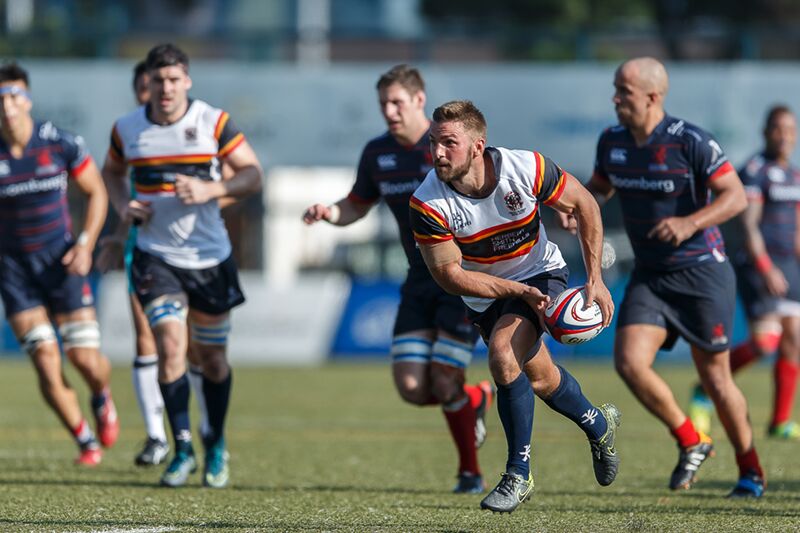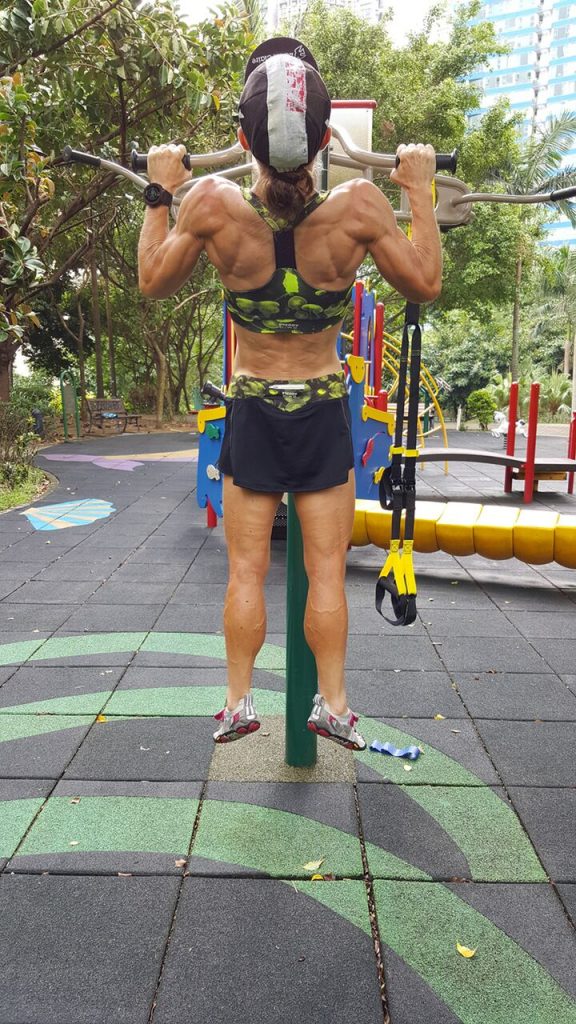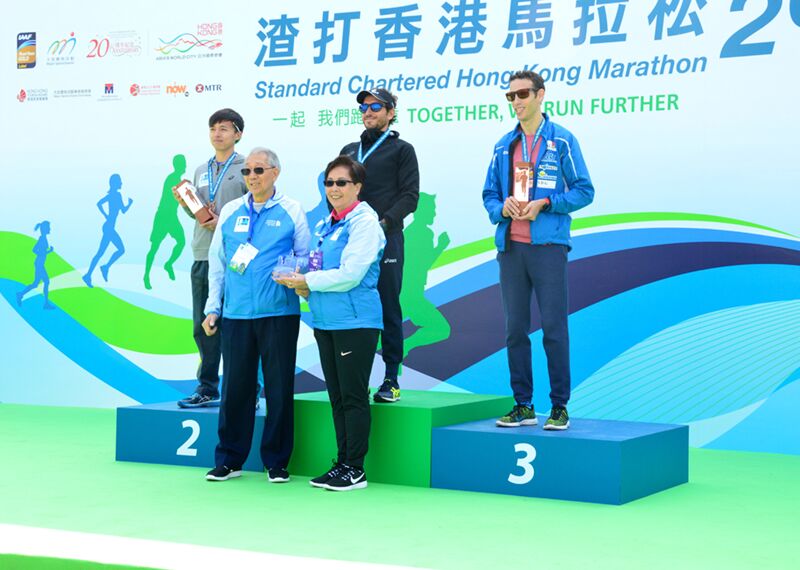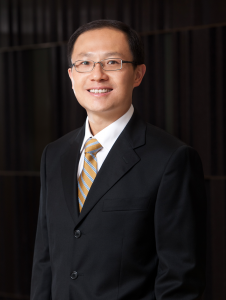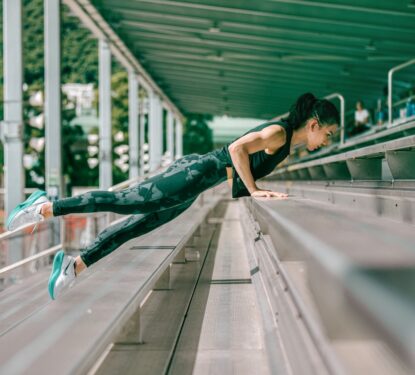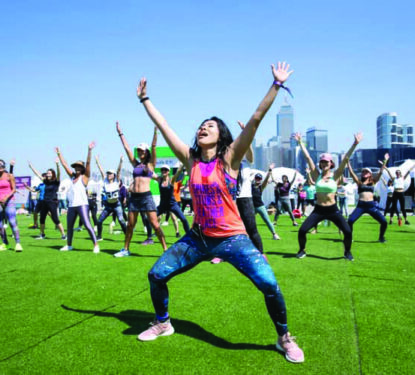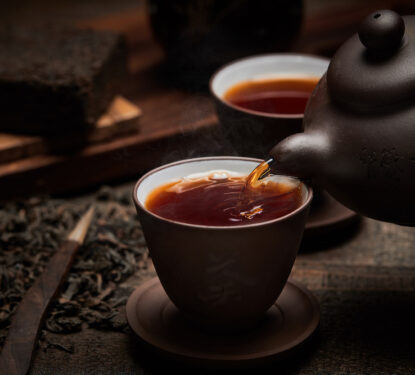For athletes, injuries are an all-too real fact of life.
Kate Farr chats to three serious sportspeople about their recover journeys, and gets some injury management techniques from the experts.
Ali Watts, personal trainer, yoga teacher and healthy coach,(Ali.Fitness)
One-woman powerhouse Ali Watts has a thriving personal training business (ali.fitness), and partipates in a range of endurance sports in her downtime. Earlier this year, Ali’s active lifestyle ground to a halt when she suff ered a devastating accident. “I was on group bike ride one morning. Someone in front slowed down, and before I could brake, I hit the bike in front of me at approximately 40 kilometres per hour.” Taking the brunt of the impact on her head and shoulder, Ali suff ered severe concussion and significant tearing to seven of her shoulder ligaments, requiring urgent surgical repair. Despite seeing an orthopaedic surgeon, ophthalmologist, neurologist, physiotherapist and osteopath, Ali continues to suff er from blurred vision and headaches, and has accepted that full recovery will be a lengthy process, “It will take around two months for the concussion to disappear and my eyesight to return to normal; six months to regain unrestricted functional movement and around 12 months to return to my previous level of fitness.” Taking a proactive approach to recovery, Ali schedules regular sports massages, takes nutritional supplements to aid her recovery, and despite all the pain and frustration, maintains a positive outlook. “I’m currently creating a podcast about bringing health to fitness… in some ways it’s fortunate that I now have time to work on other areas of my business!”.
Liam Slatem, Rugby Player, Hong Kong Rugby Football Union
Rugby player Liam Slatem’s injury came about on the job, “I was injured during a rugby match. I had the ball, was tackled from the side and went over my knee.” The tackle ruptured Liam’s right anterior cruciate ligament (ACL), requiring corrective surgery, followed by a lengthy programme of rehabilitation.
Primarily using massage to manipulate the knee joint, Liam also underwent a few sessions of needling at six months post-surgery to assist with tight hamstrings. When it came to getting back to the field, he explains, “It took around 10 months to regain full fitness. I could have pushed to be fit sooner, however we took our time and ensured all return-to-play protocols were performed confidently and naturally.” This measured approach has strengthened Liam’s commitment to training, “I believe having a serious long-term injury has made me focus on rehabilitation and getting my fundamental muscles and joints as strong as possible.”
Matt Clarke, Runner
Teacher Matt Clarke is a committed distance runner, scoring a number of podium finishes in recent years, including twice winning the China Coast Half Marathon and placing third in the local runner category in this year’s Standard Chartered Hong Kong Marathon.
Between 2014-16, Matt suffered from chronic tibia stress fractures in his left leg. “The injury set in over time. Initially it was a slight, dull pain in my calf which gradually worsened. It felt like my legs were being rubbed raw, and even walking was painful.” He discovered that this type of fracture is common in endurance athletes subjected to a lot of repetition. “It’s still not entirely clear why I developed these fractures, but it’s believed to be due to muscle imbalances putting undue strain on my hamstring and calf.” Matt’s recovery has required him to step away from his usual intensive training. “I took a three-month break from running last year to overcome the last flare-up. It took me four months to get back to normal mileage and into decent shape to compete at the front of races again.”
Ongoing physiotherapy has also aided his recovery, while customised insoles have resulted in nine months without any recurrence of his fractures. Matt is now training hard for his next goal. “I feel like that I have overcome these injuries and am running close to my best. I’ve been able to consistently run mileage of 120-130 kilometres a week without getting injured, so next year I hope to break 2.30 for the Standard Chartered Marathon and be ranked number one in Hong Kong for this distance.”
The Expert View
The Physiotherapist
With a career spanning 20 years, physiotherapist Malcolm Minns of Byrne, Hickman & Partners has worked with many world-renowned athletes, treating a wide range of musculoskeletal problems and aiding sporting rehabilitation.
Q Are there any sports that tend to result in more injuries than others?
Yes, certain sports carry a greater risk of injury and diff erent sports can be associated with diff erent types of injury. Contact sports, such as rugby or MMA, have a higher likelihood of neck, shoulder and head injury, but you’re more likely to see ankle sprains and knee ligament injuries in sports that involve sudden changes in direction, such as squash or netball. Overuse injuries, such as tendonitis, foot pain or anterior knee pain are seen more oft en in endurance sports like running and rowing.
Q What are your top tips for avoiding injury?
Injuries cannot be prevented – while we can attempt to reduce injuries, they will always happen. Your body adapts to the demands placed upon it with training – I use sunburn as an analogy, too much sun and you burn, a bit of exposure and your skin adapts. Do this over and over, adding a bit more each time and your tolerance to sunlight becomes much greater. The same principle applies whether you’re lift ing weights, training for a marathon or starting tennis.
Q What can athletes do to speed up recovery time?
Nothing we do will “speed up” the actual healing of tissues but quality sleep and rest, good nutrition and gentle activity will help. Our body has evolved over hundreds of millions of years and is quite adept at self-regulation and recovery. Think about it – have you ever had an injury, cut or bruise that didn’t heal?
The Sports Massage Therapist
Formerly a Hong Kong Sports Institute therapist, Matthew Chiu has worked at major athletics events like the Rowing World Championships, Cycling World Series and our very own Rugby Sevens. He now delivers sports massage to tensed-up Hongkongers at Central multidisciplinary clinic, UP! Health.
Q What exactly is sports massage therapy?
Despite the slightly misleading name, this discipline is for everyone, not just sportspeople. Sports massage therapists have a deeper understanding of anatomy, movement and physiology than a conventional masseur. This includes understanding how our body’s muscles function – both in our daily lives, and also during periods of intensive exercise. We off er a variety of different manual therapy techniques with the overall aim of relieving discomfort and restoring fluid mobility to our patients.
Q What types of injury do you most commonly treat?
I handle a lot of muscle springs and spasms, as well as chronic pain cases in the neck, upper and lower back, calves, and plantar fascia. For example, I’ll often see patients who wake up with acute neck pain and difficulty in turning around.
The Surgeon
Dr. Benjamin Chow is a private specialist in Orthopaedic and Traumatology. He specialises in the treatment of knee and shoulder issues, and is himself a keen runner and swimmer, and
former triathlete.
Q What sort of sporting injuries do you most commonly treat?
A variety, including shoulder dislocation, rotator cuff tears, AC joint dislocation [shoulder separation], clavicle fractures, ACL and meniscus tears and cartilage injuries.

